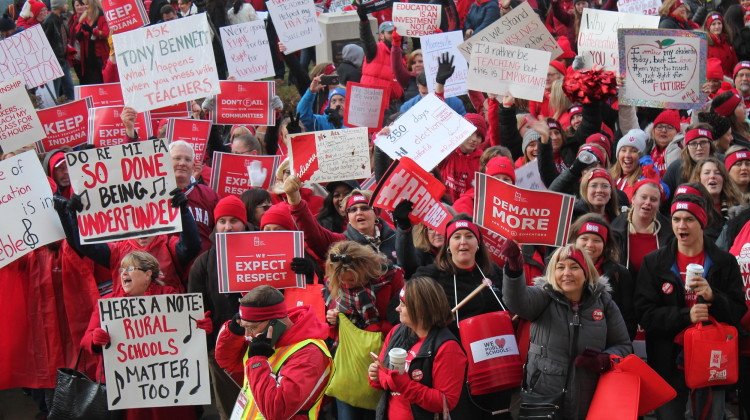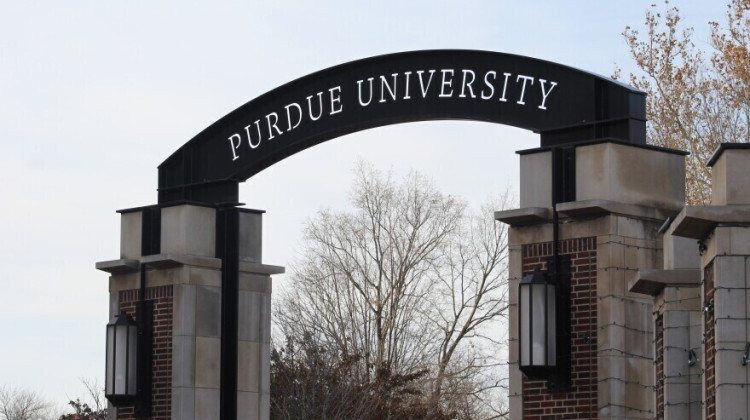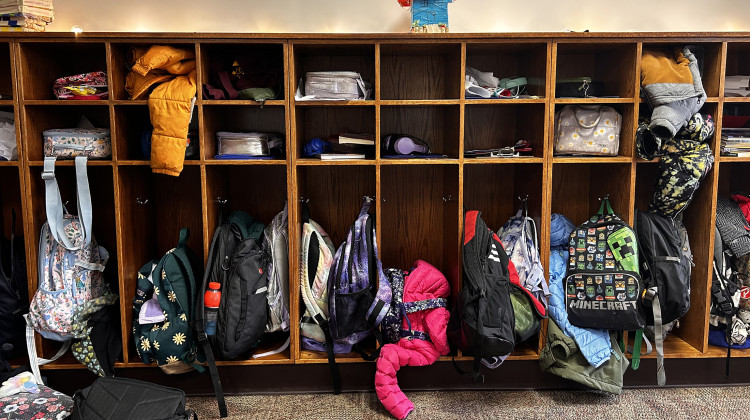Indiana lawmakers marked the start of the 2025 legislative session this week, only hinting as to what education issues they plan to address in January.
But school choice expansion emerged as a likely focus in the Senate and House chambers.
This comes as vouchers to private schools surged in the last year to a record 70,000 students at a cost of $439 million.
Plus, Governor-elect Mike Braun made alternatives to traditional public education a clear priority during his gubernatorial campaign.
Braun shared this week that he hopes options for families are expanded. He added that there should also be increased accountability in choice programs while improving quality.
Senate President Pro Tempore Rodric Bray (R-Martinsville) and House Speaker Todd Huston (R-Fishers) both said increased access to public funds for parents to pay for private parochial or non-religious schools would be a topic of discussion this legislative session.
The Choice Scholarship program is just short of universal since lawmakers have continued to remove requirements.
Advocates for traditional public education have long fought against public funds going to other options, such as public charter schools and private schools. The voucher program has come under fire as private schools can turn away students with disabilities and use anti-LGBTQ admission and employment policies.
During the 2024 legislative session, a Republican lawmaker said he wanted to overhaul how vouchers are managed. Lawmakers said they would revisit that proposal during this budget session.
One idea from last year was to shift oversight of choice programs to the state treasurer’s department is not yet outlined in legislation. Bray said he’s heard some talk about that but has not yet read any bills.
Huston spoke to other education topics during his House chamber speech while Bray left that off the table. He touted Indiana’s increased average teacher salary to $60,000 among other commendations like literacy reform and changes in high school curriculum.
A 2023 law tasks the State Board of Education to adopt new rules. The changes are supposed to promote work-based learning and help prepare high schoolers for careers.
After the education department’s first draft drew backlash from teachers and universities, the agency reconsidered. The latest draft of the new rules is similar to current graduation requirements and begins with the class of 2029.
Huston did not say if high school graduation requirements or work-based learning would come up in this legislative session, only that he’s happy with what’s landed and leadership will continue to work with school districts to implement new changes.
“We are super excited about the type of work that’s being done across the state in that area,” Huston told WFYI.
Huston said House lawmakers intend to continue “strong investments” in education when passing the state’s two-year budget that covers 2025-26 and 2026-27 fiscal years.
Last year, lawmakers approved an almost $2.3 billion increase in K-12 education funds for the two-year budget that ends in June 2025.
During a Chamber of Commerce event Monday, Bray said this budget session will be a “challenge” because there will be less money than the last three budget sessions.
House Minority Leader Phil GiaQuinta (D-Fort Wayne) said at the event that dried up Covid dollars are partially contributing to that challenge.
“Maybe when this time they say there's really no money, there may not be money,” GiaQuinta said. “So we'll just have to see where that goes.”
They also touched on property tax reform, which is expected to be a top priority. Property taxes primarily fund local government services and school districts.
“We'll pass common sense property tax relief, while ensuring locals can responsibly fund public safety and education,” Huston said in his speech.
Rachel Fradette is the WFYI Statehouse education reporter. Contact Rachel at rfradette@wfyi.org.
 DONATE
DONATE







 Support WFYI. We can't do it without you.
Support WFYI. We can't do it without you.